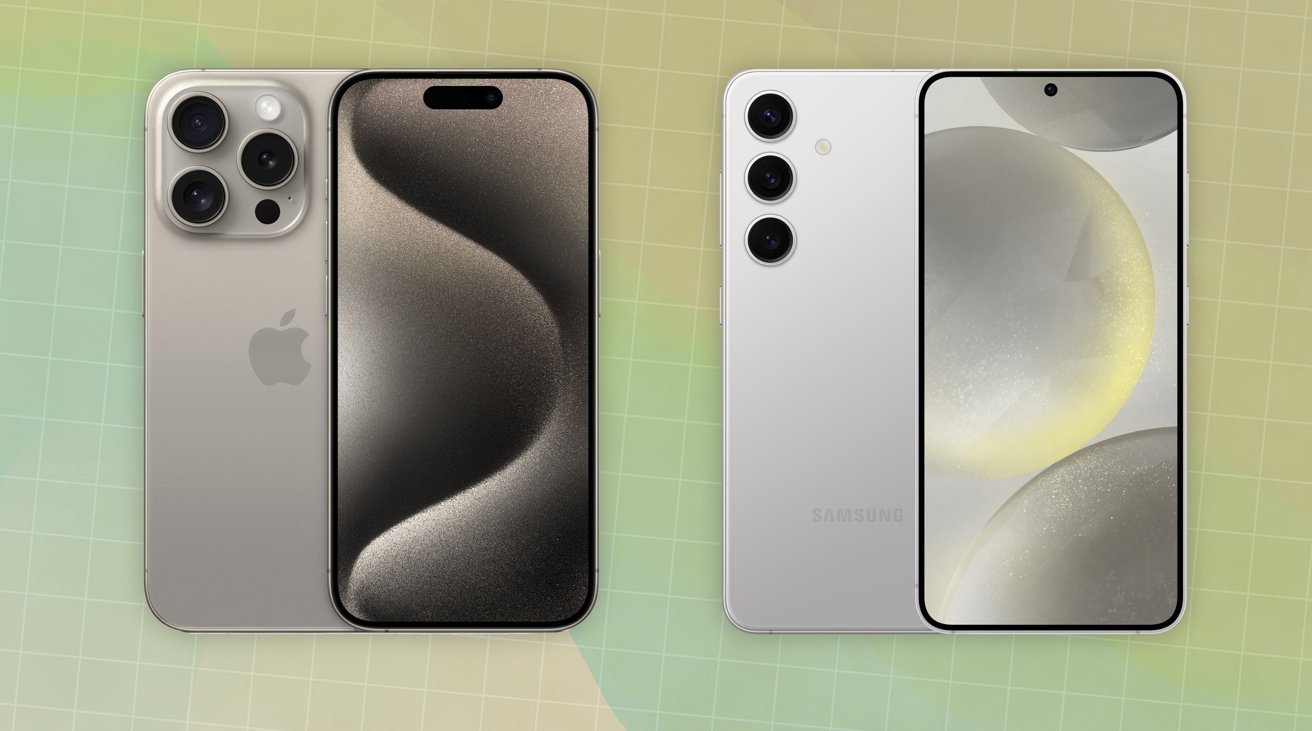Samsung overtakes Apple to become world's leading smartphone vendor
It's less a case of popularity, and more about release cycles, but Samsung is again the number one smartphone manufacturer in the world.

Apple's iPhone 15 Pro (left) and Samsung's Galaxy S24
Apple took the global top spot for smartphone sales inSeptember 2023, and a later analysis of the whole year confirmed its position. Apple had similar success in specific regions, such as Europe.
According to the Korea Times, however, the roles have now reversed. Based on figures for February 2024, the publication reports that Samsung captured a 20% share of the market.
In that month, Apple took 18%. That translates to Apple selling 17.41 million iPhones, while Samsung sold 19.69 million units spanning its entire range with retail prices as low as $80.
Neither Samsung nor Apple can really boast of being number one. For while it isn't exactly as if the two swap places to a schedule, it's very close to that.
So Apple taking the top spot in September 2023 will have been because of the launch of the iPhone 15 range. And Samsung's victory in February is because that's when its latest Galaxy S24 models went on sale.
The Korea Times reports that Samsung has sold 6.53 million of the Galaxy S24 so far.
Then based on data from January 2024, Samsung reportedly rose from 20% to 36% of the US market. At the same time, Apple in its post holiday, post launch stage in the cycle, dropped from 64% to 48%.
Apple's taking the crown over the whole of 2023 may be more significant. For year-round, Samsung typically has an advantage over Apple because it sells so very many more different smartphone models to hit different price points.
Overall, though, smartphone sales have tended to be in decline worldwide, particularly in China. Apple still topped the chart in Japan in the latest figures from March 2024, but that market has shrunk.
Read on AppleInsider

Comments
From one source it was 58.1% in 2023 up from 57.7% in 2022. Another source had it at 56.9%, which is close. The highest country of iPhone ownership is Japan at 69.2%. No surprise that Japan is also planning to introduce a “Digital Antitrust Law,” to compel Apple and I think Google to enable “application side loading” and “third-party payment” options within the Japanese market. But from reports, Japan does not seem to be aiming to hobble or even break up Apple like the EU or DOJ seems to be from their rhetoric.
The advantage that gets little press is that Apple has 271 retail stores throughout the U.S. These store provide a high level of service and support to iPhone owners, making even purchase at a carrier outlet a reasonable choice, should those services and support be required later at an Apple Store.
Of course, Carriers love selling iPhones.
Ford, or any other carmaker, is not making a device that you run your life through. You don't bank through your car. You don't shop through your car. You don't communicate through your car. You don't identify yourself through your car. Your car isn't on your person for long either. Your car isn't accumulating the same amount of data on you as your mobile devices. You don't use your car to create much.
The same cannot be said for mobile communications devices in general which are limited to very few platforms which also act as gatekeepers.
That changes everything and is precisely why these DoJ type cases have sprung up across the globe.
Marketshare itself isn't an issue and never was. How you manage your business with that marketshare, though, could very well put you under the spotlight.
That said, at some point, cars may well become part of generally widespread digital ecosystems and treated like them but that isn't the case today in general terms.